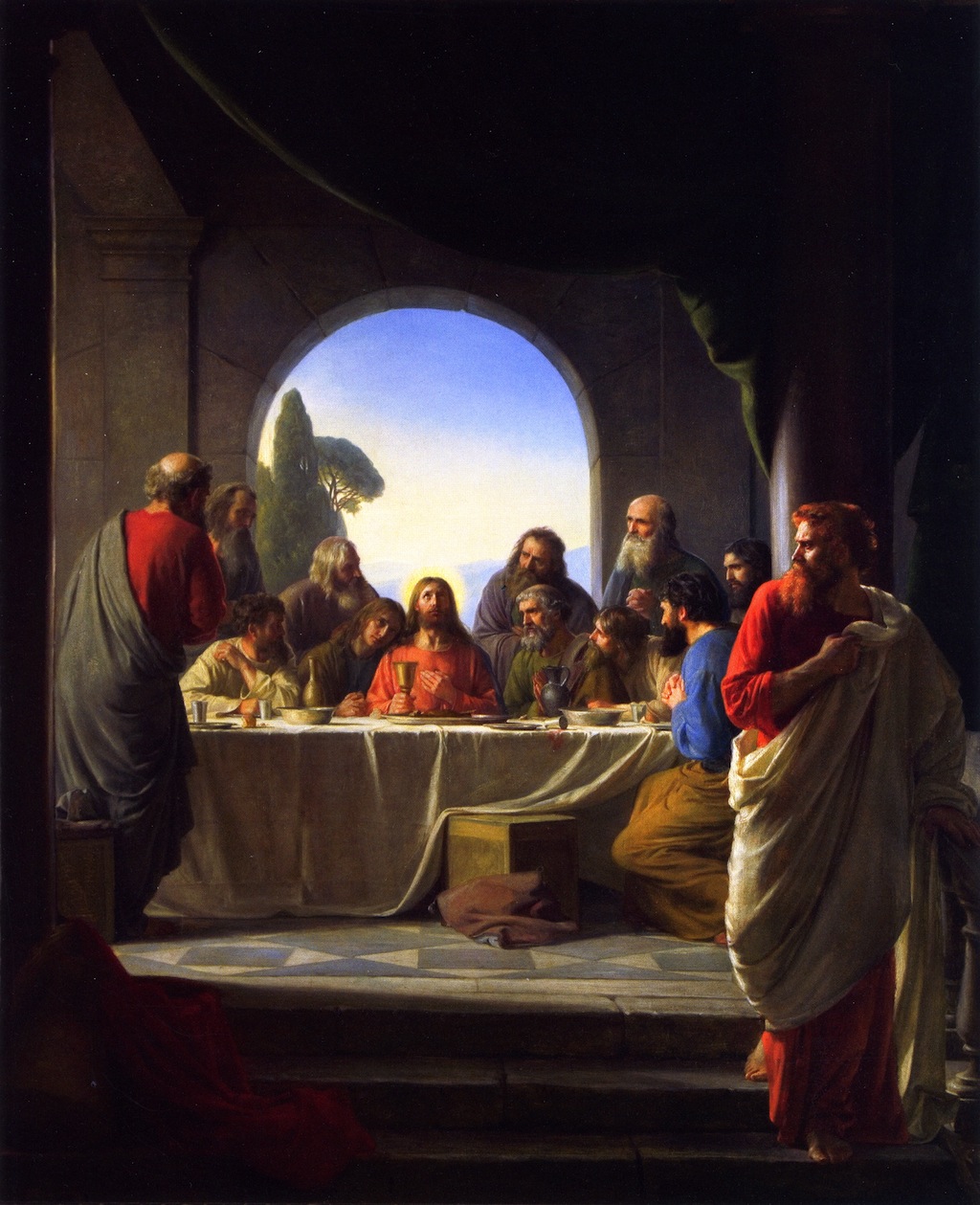Wednesday of Holy Week is traditionally referred to as Spy Wednesday, the day the Church remembers Judas Iscariot’s scheming with the religious authorities to be rid of Jesus of Nazareth. Each Gospel writer offers a unique telling of this story, emphasizing peculiarities and various dialogues between Jesus, His disciples, and the Jewish religious governance. The careful reader observes that all four Gospels directly address Judas’ deceptive acts as the work of satanic influence. Likewise, even a subtle reading of each Gospel leaves no room to doubt the determination of Jewish authorities to have Jesus killed, that Judas doesn’t act alone. For instances, Luke states, “the chief priests and scribes were looking for a way to put Jesus to death” (Luke 22:2). Mark stresses that when Judas approached the chief priests, “they were delighted to hear this, and they promised to give him money” (Mark 14:11).
Because of Judas’ popular reputation as Jesus’ betrayer, perhaps we tend to overlook the impactful details that each Gospel offers. The Gospel writers all capture a real sense of confusion and disillusionment, as even Jesus’ inner circle flees in the final hours leading up to the Passion. For instance, in Matthew’s Gospel, Jesus echoes the prophet Zechariah when he tells the Twelve: “This very night you will all fall away on account of me” (Matt. 26:32; see Zech. 13:7). Although each writer shares the story with distinct intentions, all four gospels insist on Judas’ presence with Christ at the same table, partaking of the same bread, dipping his hand in the same bowl, hearing the same words, and experiencing the same love as do the other eleven. John’s reminiscence of Psalm 41 mustn’t be overlooked. He has Jesus resounding the Psalmist’s lament: “Even my close friend, someone I trusted, one who shared my bread, has turned against me” (John 13:18; see Ps. 41:9).
Moreover, who can forget the setting in John’s gospel? After washing the disciples’ feet–which John says is Christ expressing the full extent of His love (John 13:1)–Jesus imparts upon the disciples a new commandment to “love one another” as they have been loved. Such love is to be the distinguishing mark of their discipleship (Jn.13:34-35). John’s telling places a spotlight, however, on both Judas Iscariot and Simon Peter. Readers will recall Peter’s initial reluctance to have Jesus wash his feet before the storyline turns to Judas.
Judas, having been washed by Jesus and having partaken of the dipped bread offered by Jesus, goes into the night to carry out his deceiving scheme under the influence of Satan. Then the author turns the light back to Peter, who will experience a long, dark night himself. In distress at Jesus’ farewell, Peter exclaims, “I will lay down my life for you!” Jesus responds to Peter at the conclusion of the episode: “Will you lay down your life for me? Truly, truly, I say to you, the rooster will not crow till you have denied me three times” (John 13:37-38).
And this brings us to a necessary meditation on this Wednesday of Holy Week. First, might we begin with a contemplative question: “Who is the real enemy in this story?”
Second, let each of us now consider our (at best) partial understanding of the revelation of God’s inexplicable goodness and love as witnessed in Christ for the sake of the world.
Third, let us be found in repentant posture, recognizing our need to be washed by Christ and by others? Correspondingly, and in obedience to Christ, how might we wash, feed, forgive, and love those who are deceived and act deceptively?
Further, from the shores of reconciliation where we experience redemption, may we call out to the many, in their boats of shame and disappointment, who need to hear a beckoning voice of peace and restoration.
Finally, we are prone to isolate ourselves and attempt to deal with the guilt and shame of our realized failures by means of our own frail hands and deceptive hearts. Let us instead, as the Spirit of grace continues to awaken us to the truth of God’s goodness and our own inward darkness, find ourselves falling into the arms of a merciful God.
Today, as we deal with Judas and remember the Christ, let’s also not forget how Judas exhausted himself endeavoring to make right his wrong, returning the thirty pieces of silver to religious leaders and priests who rejected his attempt to repent. And, let us be “re-membered” to the Christ who washes and feeds and loves and calls again, even (and especially) those who betray and deny.
Jason McCary is Assistant Professor of Bible and Theology at Emmanuel College. He formerly served as a pastor and as Discipleship Ministries Director for SpiritLife Ministries (Upper South Carolina). He lives in northeast Georgia.


